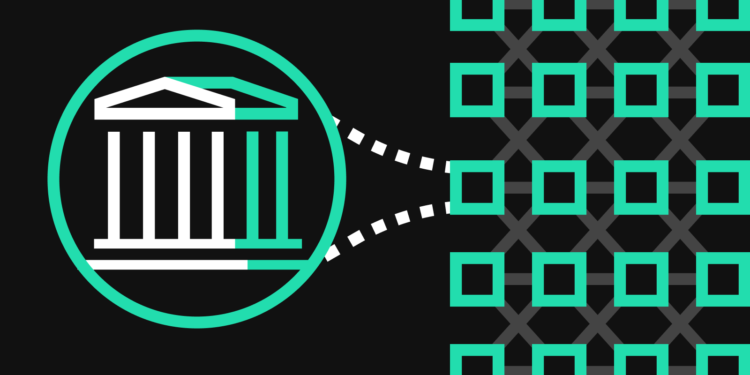The world of finance is experiencing a significant shift due to the rise of decentralized technologies and blockchain. Experts believe that the global blockchain technology market size will grow with a CAGR of 90.1% from 2025 to 2030. A concept gaining considerable attention in this space is decentralized governance, which is changing how financial systems operate and how decisions are made. But what exactly does decentralized governance entail, and why is it so crucial for the future of finance?
In this guest post, we will explore what decentralized governance is, how it operates, and its potential impact on the financial industry. Additionally, we will discuss a growing trend in crypto trading—delta-neutral strategies—and how these strategies integrate into the broader landscape of decentralized finance (DeFi).
What is Decentralized Governance?
At its core, decentralized governance refers to a system in which control and decision-making are spread across a network instead of being concentrated in a central authority. In traditional finance, power typically resides with centralized entities—such as banks, governments, and regulators. These institutions make crucial decisions on matters ranging from monetary policies to investment strategies.
Decentralized governance, however, alters this model by allowing a community of participants to come together to make decisions collectively. These participants can include anyone with a stake in the system, and they typically receive voting power through mechanisms like tokens or other types of digital assets.
For example, within decentralized finance platforms, participants may vote on decisions like which new features to develop, how funds are allocated, or what governance rules should be established. This collaborative approach fosters greater transparency, inclusivity, and autonomy for users.
The Rise of Decentralized Finance (DeFi)
Decentralized finance (DeFi) is a primary driver of the growing interest in decentralized governance. DeFi encompasses financial services—such as lending, borrowing, trading, and insurance—that are constructed on blockchain technology and do not depend on traditional financial institutions.
In DeFi, decentralized governance is achieved through smart contracts and blockchain protocols. These technologies enable the automatic execution of financial transactions without intermediaries. For example, in a DeFi lending protocol, loans are issued, collateral is secured, and repayments are processed—entirely automatically through smart contracts. This significantly reduces the cost of financial services while improving their accessibility and efficiency.
How Decentralized Governance Works in DeFi
The role of decentralized governance in DeFi is crucial, as it ensures that decisions are made by the community instead of a central authority. The total value locked (TVL) in DeFi was approximately $54 billion in January 2024. In many DeFi projects, governance tokens are granted to users who participate in the platform’s ecosystem. These tokens grant users voting power, which they can use to propose changes, vote on updates, and shape the project’s direction.
For example, MakerDAO, a well-known DeFi protocol, utilizes a decentralized governance model where holders of its governance token, MKR, can vote on key issues such as risk parameters, interest rates, and collateral types. This allows users to have a direct influence on the platform’s evolution, making the system more adaptable to changing market conditions.
Governance decisions are typically made through on-chain voting, meaning that all votes and results are recorded on the blockchain. This enhances transparency, as anyone can view the voting process and its outcomes, thereby reducing the risk of manipulation and corruption.
Benefits of Decentralized Governance
- Transparency and Trust: Traditional financial systems often operate behind closed doors, making it challenging for users to understand how decisions are made. Decentralized governance, however, is based on blockchain technology, which provides transparency. All decisions, proposals, and voting outcomes are recorded on the blockchain and are accessible to everyone.
- Inclusivity: In traditional systems, decision-making is confined to a small group of individuals at the top. In decentralized governance, anyone with a stake in the platform can engage. This encourages a more democratic approach, where every participant has a voice.
- Security: Centralized systems are susceptible to hacking and fraud since all data is stored in one location. In contrast, decentralized governance harnesses the security of blockchain to guarantee that no single point of failure exists.
- Autonomy: By eliminating the need for intermediaries, decentralized governance empowers users to take greater control over their financial activities. This results in fewer restrictions and increased freedom to make decisions based on individual preferences.
The Influence of Decentralized Governance on the Future of Finance
The DeFi market is growing, and experts believe it will grow with a compound annual growth rate (CAGR) of 39.5% between 2022 and 2027. As decentralized governance models evolve, their impact on the future of finance is likely to be profound. Here are a few ways it could reshape the industry:
- Disintermediation of Financial Institutions: Traditional banks and financial institutions act as intermediaries, managing the flow of money and providing financial services. With decentralized governance, the demand for intermediaries is significantly reduced. This shift could result in a system where individuals have greater direct control over their financial assets and transactions, removing many fees and inefficiencies tied to traditional finance.
- Creation of More Inclusive Financial Products: Decentralized governance systems enable the development of financial products that are more accessible to a wider range of people. In traditional systems, many financial services remain out of reach for individuals who don’t meet certain criteria (e.g., income level, credit score). With decentralized systems, anyone with internet access can participate in global financial markets.
- Automated, Self-Sustaining Systems: Decentralized governance can automate financial processes, minimizing the need for manual oversight and intervention. This can enhance the efficiency of financial services, reduce costs, and decrease the potential for human error.
- Flexibility in Decision-Making: Decentralized governance, by relying on community input, offers greater flexibility and adaptability in financial systems. Decisions can be made swiftly in response to evolving market conditions, and new features or modifications can be implemented based on the collective feedback of stakeholders.
Delta-Neutral Crypto Trading and Decentralized Governance
One of the more advanced strategies emerging in the decentralized finance space is delta-neutral crypto trading. Delta-neutral strategies seek to hedge against the price volatility often observed in the crypto market while still enabling traders to benefit from other opportunities such as yield farming or liquidity provision.
In simple terms, a delta-neutral position is one in which the gains or losses from price changes in an asset are neutralized. This can be achieved by employing both long and short positions or by utilizing derivatives such as options and futures. The goal is to create a portfolio where price movements do not significantly affect the overall position.
Why is this relevant to decentralized governance? Many DeFi platforms empower users to engage in advanced trading strategies within a decentralized environment. For example, a decentralized exchange (DEX) can enable users to create delta-neutral positions through its smart contracts, eliminating the need for a centralized authority to supervise the process. This aligns with the broader goals of decentralized governance by equipping users with the tools to make informed, autonomous decisions regarding their investments.
Furthermore, by employing decentralized governance mechanisms, users can vote on the creation of new financial instruments or modifications to existing protocols, enabling enhanced customization and risk management strategies—such as delta-neutral trading—across various platforms.
Challenges of Decentralized Governance
Although decentralized governance provides numerous benefits, challenges remain that need to be addressed:
- Complexity: The decentralized nature of these systems can make them more challenging to comprehend and utilize. Engaging in governance often necessitates technical knowledge and an understanding of how blockchain and smart contracts function.
- Voter Apathy: In decentralized governance, participation is essential. However, not all users engage actively in decision-making, which can result in low voter turnout. This may undermine the effectiveness of decentralized systems if the majority of users do not participate in governance processes.
- Security Risks: While blockchain technology provides improved security, decentralized platforms are still vulnerable to hacking and other security breaches. Ensuring that governance protocols remain secure and resilient against attacks is a continuous challenge.
- Scalability: As decentralized finance platforms expand, adapting governance models to support larger user bases without compromising effectiveness or decentralization can be challenging.
Final Thoughts
Decentralized governance is a powerful concept that transforms the operation of financial systems. By empowering users to make decisions and control their financial activities, decentralized governance fosters more transparent, secure, and inclusive financial frameworks. As these systems evolve, they hold the potential to significantly impact the future of finance, providing new opportunities for both retail and institutional participants.
Decentralized governance is reducing the need for intermediaries and allowing for more flexible, user-driven decision-making, paving the way for a more autonomous and efficient financial landscape. As the DeFi ecosystem grows and new strategies like delta-neutral crypto trading emerge, the possibilities for innovation within decentralized finance are endless.
Although challenges persist, the progress achieved thus far indicates that decentralized governance may be crucial for unlocking a more democratized and resilient financial future.


![7 Best POS Software in the UK [2026 Edition]](https://todaynews.co.uk/wp-content/uploads/2026/02/7-Best-POS-Software-in-the-UK-2026-Edition-360x180.png)








































































